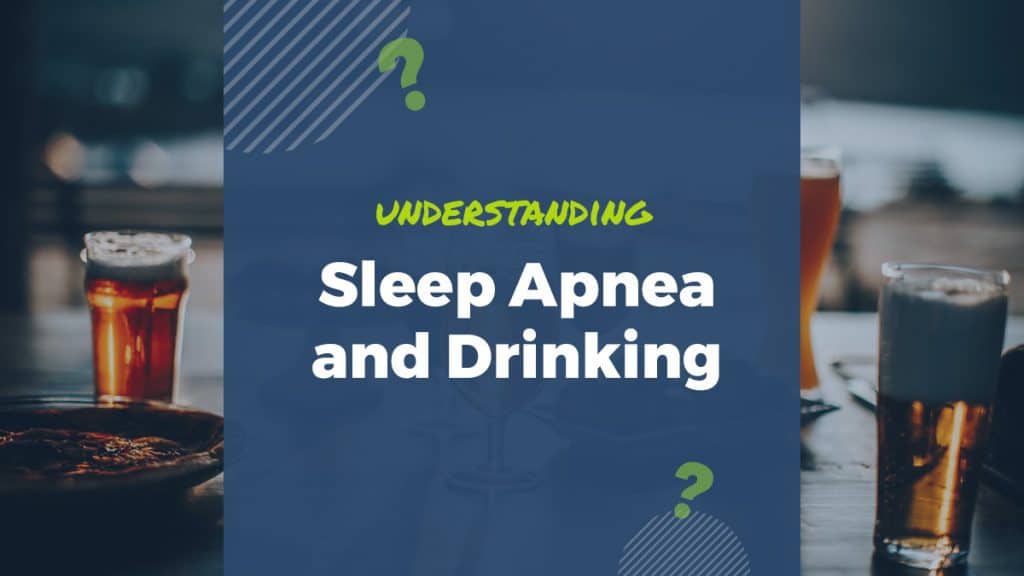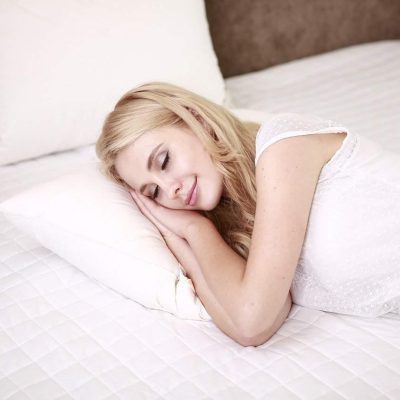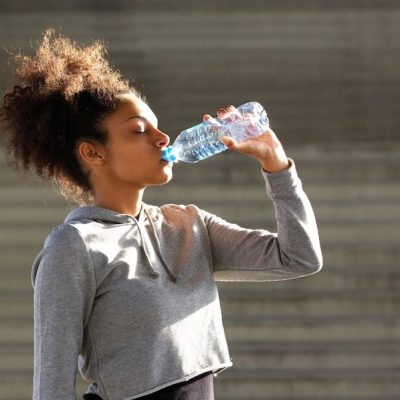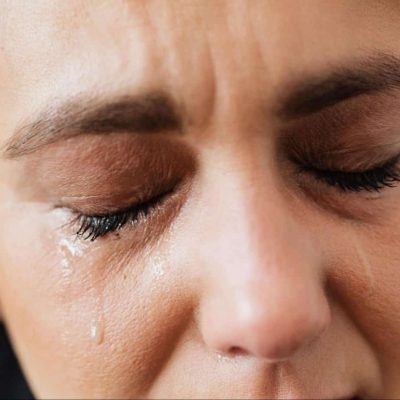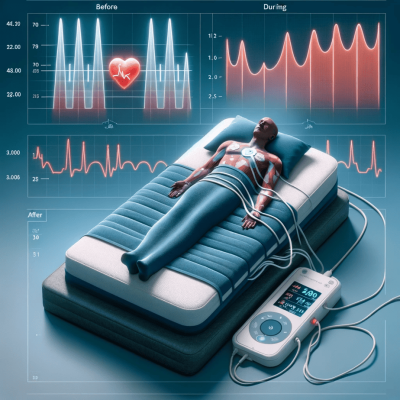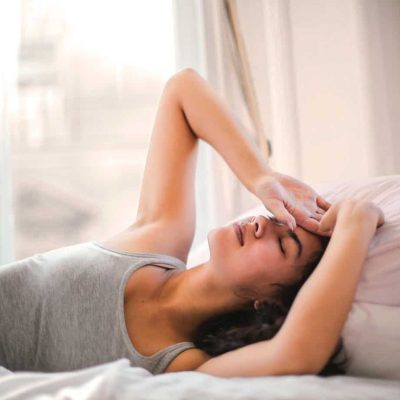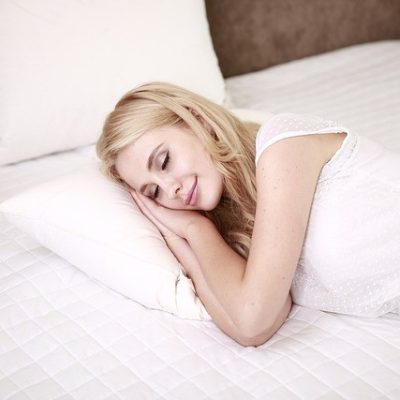Sleep is generally known to assist recovery from physical, mental, and brain fatigue caused by daytime activities. Poor quality sleep leads to increased stress, fatigue, and mood disorders (1). It also raises risks of obesity, metabolic syndrome, and cardiovascular disease (2).
If you suffer from Obstructive Sleep Apnea (OSA), you must know that drinking alcohol can increase apnea events and their duration.
In OAS, breathing stops for brief periods during sleep. It’s because the normal flow of air is repeatedly prevented throughout the night. Alcohol disturbs the length of sleep state and natural cycle by changing the total amount of time you sleep, and the time it takes you to fall asleep. In short, it can worsen your sleep apnea symptoms.
Recent research studies assess how alcohol affects your sleep apnea and snoring by relaxing airway muscles (3)(4)(5). These findings must make to want to change your drinking and sleep habits.
This article is compiled to provide information gathered from credible, fact-based sources to give you an overview of how alcohol affects your sleep apnea? Furthermore, if you choose to drink, we’ll provide guide on how to get a better night’s sleep. We also answer common questions that you may have about how drinking impacts sleep health.
Table of Contents
ToggleWhat Is A Normal Sleep Pattern?
Normal sleep consists of two alternating states of sleep in which your brain waves show varying activity (6);
- Slow Wave Sleep (SWS)
- Rapid Eye Movement (REM) Sleep
In slow-wave sleep (SWS) or Non-REM sleep, your brain waves are slow. It usually makes up about 75 per cent of your night sleep and is restful and deep.
While the rapid eye movements (REM) sleep makes up about 25 per cent of sleep time for young adults. During REM sleep, your eyes make rapid movement while you’re still sleeping. It’s less restful and associated with dreaming.
“Scientific research does not find the exact function of REM sleep for the body. But, it seems to be required for the restoration. Some laboratory rat studies found that when rats are deprived of REM sleep, it can result in death within a few weeks.”
How Does Alcohol Affect Sleep Apnea?
Compared to the general population you are more likely to have OSA if you are:
- Obese or overweight
- Older or middle-aged
- Have anatomy that narrows the airway
About 20 per cent of Americans have obstructive sleep apnea, and only 10% have a diagnosis (1). Even if you don’t have a diagnosis, there is a strong association between alcohol and OSA. Especially if you already snore and have alcohol use disorder, you may be at higher risk for developing OSA.
“Research studies show that people who don’t even have the condition; moderate or heavy drinking can cause episodes of obstructive sleep apnea.”
For those with OSA, the consequences of sleep apnea become more pronounced when you drink because it relaxes your muscles and diminishes your arousal response time.
Arousal response is how your body knows to wake up when you can’t breathe because of a blocked airway. Alcohol reduces this arousal response time. It means that you won’t wake up as quickly when your breathing stops because of OSA. In short, it increases the time between when you stop breathing and “wake up” to breathe again.
If you stop breathing, it could take longer to wake up. It means you’ll be without oxygen for an extended period. It makes the drops in your blood’s oxygen levels. It may lead to increased carbon dioxide in the body, which, in severe cases, can be fatal.
Alcohol Effect on Snoring And Night-Time Breathing
In patients with sleep disorders such as sleep apnea, drinking alcohol can affect nighttime breathing.
Alcohol declines your drive to breath. Moreover, it may relax your throat muscles, which may collapse your upper airways. It may add to snoring, which represents the vibration of the soft tissues that occurs in sleep apnea.
Does Alcohol Cause Sleep Apnea?
Alcohol doesn’t cause sleep apnea. But research shows that patients who engaged in frequent alcohol use, regular drinking puts them at higher risk for developing sleep apnea. It can also make current OSA episodes worse. The best recommendation for patients that are at risk of developing OSA is to abstain from drinking (7).
Can Alcohol Keep You Awake?
Drinking alcohol keeps you awake and makes it harder to fall asleep and stay asleep. It also messes with the body’s melatonin levels and makes sleep less productive. Several studies have shown that drinking momentarily increases sleepiness, but later causes frequent night-time and early morning awakenings (8).
According to the National Institute of Alcohol Abuse and Alcoholism:
“Alcohol associates with sleep restriction and sleep deprivation to increase daytime sleepiness and alcohol-induced performance impairments (9)”
Should Sleep Apnea Sufferers Avoid Alcohol?
Well, if you have sleep apnea, the best advice would be to abstain from all alcohol use. Here are research-based reasons;
Alcohol and Sleep in Those With Alcoholism
Many people who have insomnia will take a drink before bedtime to help them fall asleep. According to a National Sleep Foundation survey:
“In the general population, 30% of people with persistent insomnia have reported that alcohol helps them sleep in the past year. And 67% of those demonstrated that alcohol was useful in inducing sleep.”
This is because, after an initial stimulating effect, alcohol’s sedating effects can reduce the time required to fall asleep. But alcohol’s effects do not end there.
Research shows that alcohol consumed within an hour of bedtime will disrupt sleep in the second half of the sleep period. It causes the person to sleep fitfully—awakening from dreams and not being able to get back to sleep easily.
Over time, the drink before bedtime works even less effectively. With continued consumption, studies found, alcohol’s sleep-inducing effects decrease, while its sleep disturbance effects increase.
Alcohol And Sleep In Those With Low And Moderate Drinking
According to the Dietary Guidelines for Americans:
“Moderate drinking is up to one drink per day for women and up to two daily drinks for men”.
Specifically, a low alcohol intake decreased the physiological recovery by 9.3 percent that your sleep normally provides you. Even one drink was shown to impair sleep quality. Moderate alcohol consumption lowered restorative sleep quality by 24 percent.
Even the happy hour drinking can affect your sleep too.
Studies have found that alcohol consumed even six hours before bedtime can increase wakefulness during the second half of sleep. Even though the alcohol consumed has already been eliminated from the body.
How to Sleep Better After Drinking Alcohol?
If you have obstructive sleep apnea, the best advice would be to abstain from all alcohol use. But still, if you chose to drink; make sure to:
- Use Your Treatment For Sleep Apnea Every Night
If alcohol is a part of your lifestyle, you should consider your treatment. Such as using an auto CPAP machine, as your muscle tissue relaxes more when you drink. So, an increase in pressure may be needed to keep your airway open.
- Become A Side Sleeper
Sleeping position is another tactic that can help you sleep better. A recent study found that alcohol and sleep apnea are a bad combination. Because its consumption increases the OSA symptoms that the CPAP is fighting against, making it harder for air to reach your lungs (10).
Research has shown sleeping on your back is the worst sleep position for Sleep Apnea (11).
Side sleeping allows gravity to open a fully relaxed airway. It makes the CPAP machine more effective.
- Observe How Much Alcohol You Consume
Moderate drinking, as opposed to heavy drinking, can make a big difference in the quality of your sleep. Studies have shown that the more you drink, the worse you make your sleep apnea symptoms. Even one drink per day can have an impact on how you sleep. The scientific evidence shows that limiting the number of drinks you consume before bedtime can make for a better, more restful sleep.
Our ultimate recommendation is to get assessed by your board-certified sleep medicine physician or go to the nearest outpatient center to ensure your condition is adequately treated.
Final Words from Well-Aware-System’s Experts
- Entirely eliminating alcohol consumption is the best way to eliminate the effects of alcohol consumption on sleep apnea.
- If you enjoy drinking alcohol, even occasionally, this is unlikely. At the very least, don’t consume alcohol in several hours before bedtime to minimize the effects overnight.
- Must use your treatment for sleep apnea every night.
- You should also keep in mind the importance of setting up your continuous positive airway pressure (CPAP) under typical sleeping conditions. Because, if you drink alcohol daily but abstain before your titration study; the pressure may not be adequate to maintain your airway when you drink.
- This article is compiled from fact-based resources and is only for informational purposes. About your condition, only your sleep specialist knows the best. Our ultimate recommendation is to get assessed by your board-certified sleep medicine physician to ensure your condition is adequately treated.

